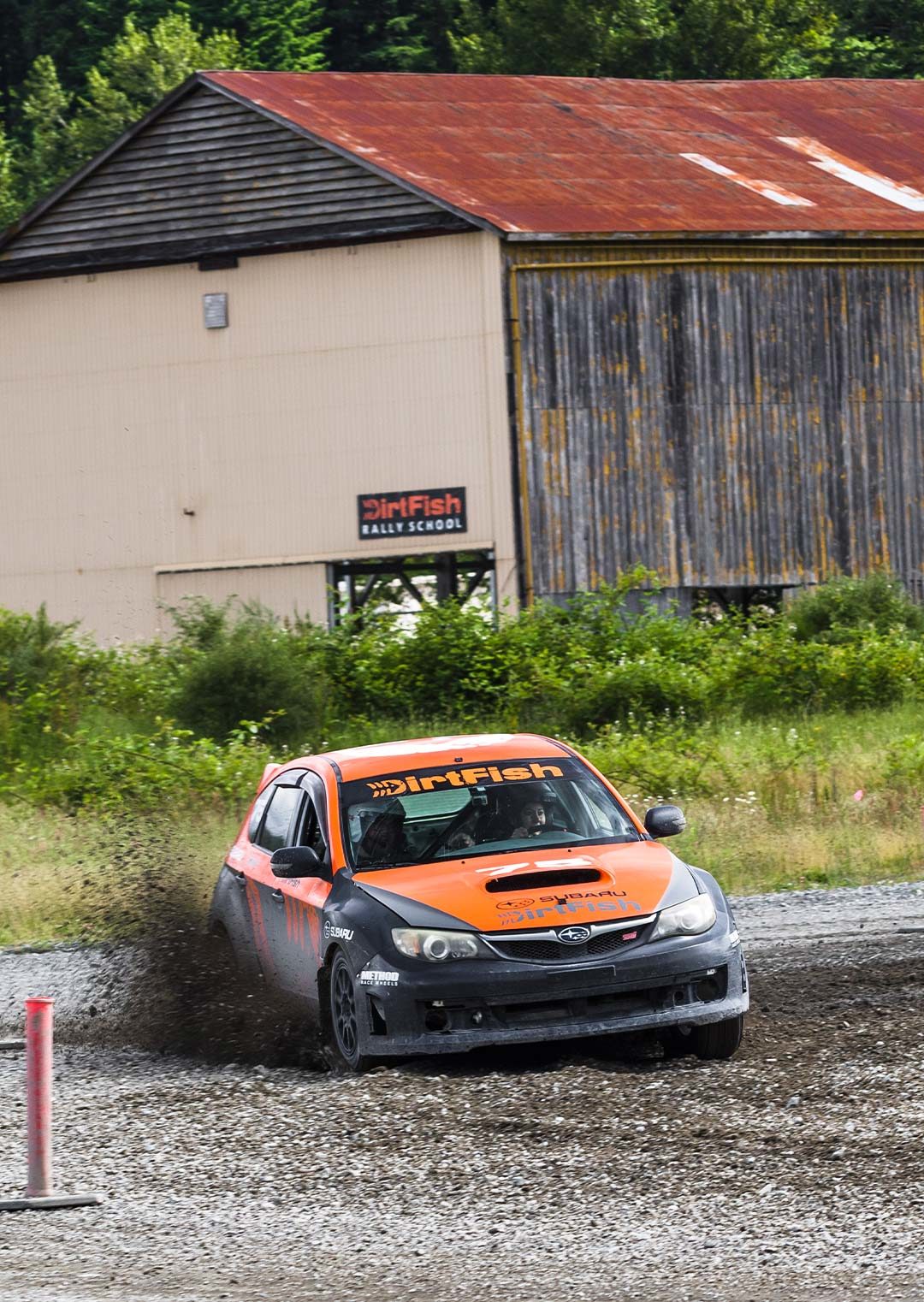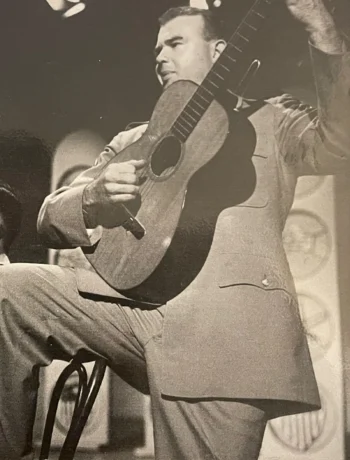Drifting through flow state
Kicking it into second gear, I hammer the gas pedal to the floor and aim for the hairpin corner—this seems crazy, my thoughts tell me. Letting go of panic, my focus turns to the moment and the actions I need to take. I trail brake and drift the car sideways through the corner, looking ahead for the perfect trajectory before I stomp the gas again.
Your first instinct in any stressful or high-risk situation is to react. Like a rally car driver who learns to disengage their impulses when driving full throttle through a winding forest, you can increase your performance by learning to tune into the moment.
Tuning into the moment
Exploring the minds of athletes, musicians, dancers, rally car drivers, and artists demonstrates the ability to tune in for exceptional performance. A mountain biker with precisely-timed fine motor control, moves their body with finite precision to absorb the trail gnar. All the while the simultaneously perceiving the terrain so that she can make critical split-second decisions—“Do I feather the brakes or increase momentum and veer right?”.
You can be an elite athlete, but if you’re not tuned into the now, you could choke. You can be an extraordinarily talented musician, but if your instrument isn’t tuned, the music will sound like noise. This is the same as you—if you’re not tuned into your body, mind and soul; and the moment, your experiences will appear off and filled with noise.
Being in tune with the moment means you’re outside conscious thought—a sort of autopilot. When under pressure, however, anxiety often creeps in, causing you to focus harder in an attempt to perform better. That’s where things begin to unravel—where athletes “choke”, you forget the words to your business presentation, and you spill your drink in front of your crush.
Focus on relevant information
A winning athlete learns to effectively focus only on performance-relevant cues in their surroundings—the ones that help them perform at their best. Conversely, those who often fumble or choke focus on performance-irrelevant cues, and an excessive amount of trivial information. We cannot progress down the trail if we allow ourselves to become distracted—by other riders, the chance of encountering a bear, or the obstacles that lie on the next trail.
If we extend this principle to our everyday lives, we can see how increasing our ability to focus on the task-at-hand would be much more productive than worrying about our entire day. Instead of worrying about all of the emails you need to answer, start with one. Rather than stressing about your endless to-do list, start with the first item.
Logic vs. Feeling
When analyzing a rock roll, a rider can explain how the bike momentum and rock camber affect how the bike will roll; the body position required and the amount of brake necessary. But when she’s dropping into the slab during a ride, she wouldn’t dare think about the physics at play.
Riding well is complex. You’ve gotta train yourself not to overthink. Physicality is a critical aspect of sport, but mental training is just as important. Distractions are inevitable, failure lurks, and the mind has the power to sabotage success in an instant. This is why athletes must master the mind to guide their focus, control their emotions, and reach a state of flow.
You can make up a logical rationale in your head of why— you should do something, take a certain job, date (or not date) a person, go on a vacation, or move somewhere, but the reality is you need to dive deep into how it feels in order to make the decision. Does the thought of starting a mediocre, but well-paying job make you cringe with anxiety, while the idea of starting a food truck with your best friend bring on feelings of contentment and well-being? It may be that despite the seeming logical choice, taking on a challenge with your friend is what you truly want and need.
Repetition & Re-tuning
Tuning in is about making decisions at a subconscious level. Learning how to do that could involve training with different distractions that might make you lose focus, then bringing your attention back to the moment. You could practice this through meditation or sport, and the trick is repetition.
Anyone who has tried to play guitar knows how difficult it is and how much practice it takes to learn it. But much like learning to ride a bike, once the complicated skill is mastered, suddenly everything “clicks” and the process becomes mysteriously automatic—and flowy.
We tune an instrument before we play it, and when it drifts out of tune we retune. In your every day life you’re going to experience moments where you feel off—and out of tune. This is when you bring your attention back to the moment, slow down, and breathe. This is where you ensure you’re in tune with your mind, body and soul…What is one thing you can accomplish right now? Have you had a nourishing meal and exercised? What is something you can do right now for the pure joy of it?






No Comments